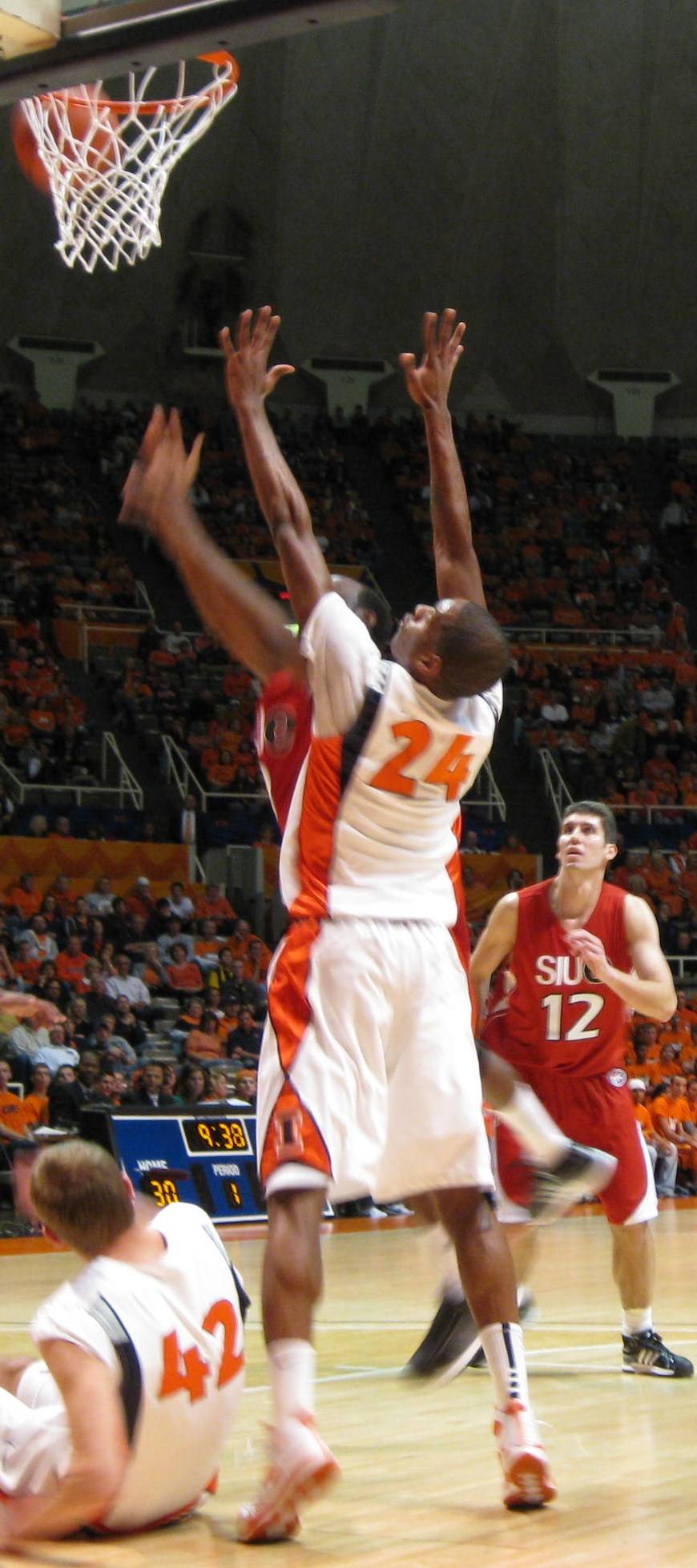 You’ve probably read a lot about Brandon Paul in the last 48 hours, so I’ll just say it was an excellent performance, and move to other observations.
You’ve probably read a lot about Brandon Paul in the last 48 hours, so I’ll just say it was an excellent performance, and move to other observations.
The Illini started the 2010 season with three sharp assists on its first three buckets. Brandon, Dietrich Richardson and Demetri McCamey each zipped one through the perimeter of a startled SIUE. Yes, all three starting guards christened the season by distributing, equally, successfully, snazzily, and from the get go.
Mike Davis played another great game. Statistically he had ten and ten, his tenth double-double as an Illini.
The best part of Mike’s game was quickness. He moved his feet on defense. He kept his position. That he cleared ten boards is simply a consequence of these fundamentals. A guy his size should not be able to move that quickly, and few of them do.
Four players had double-figures. They probably felt validated. (More on this later.)
Richard Semrau had three rebounds and a bucket one half-minute spurt, from 1:40 to 1:11. He also missed a lay-up and didn’t catch a laser pass fired by Dominique Keller from point blank range. That’ll be plenty of fodder for the idiots who persist in claiming Semrau has bad hands and can’t shoot.
The people who know better are the people who count.
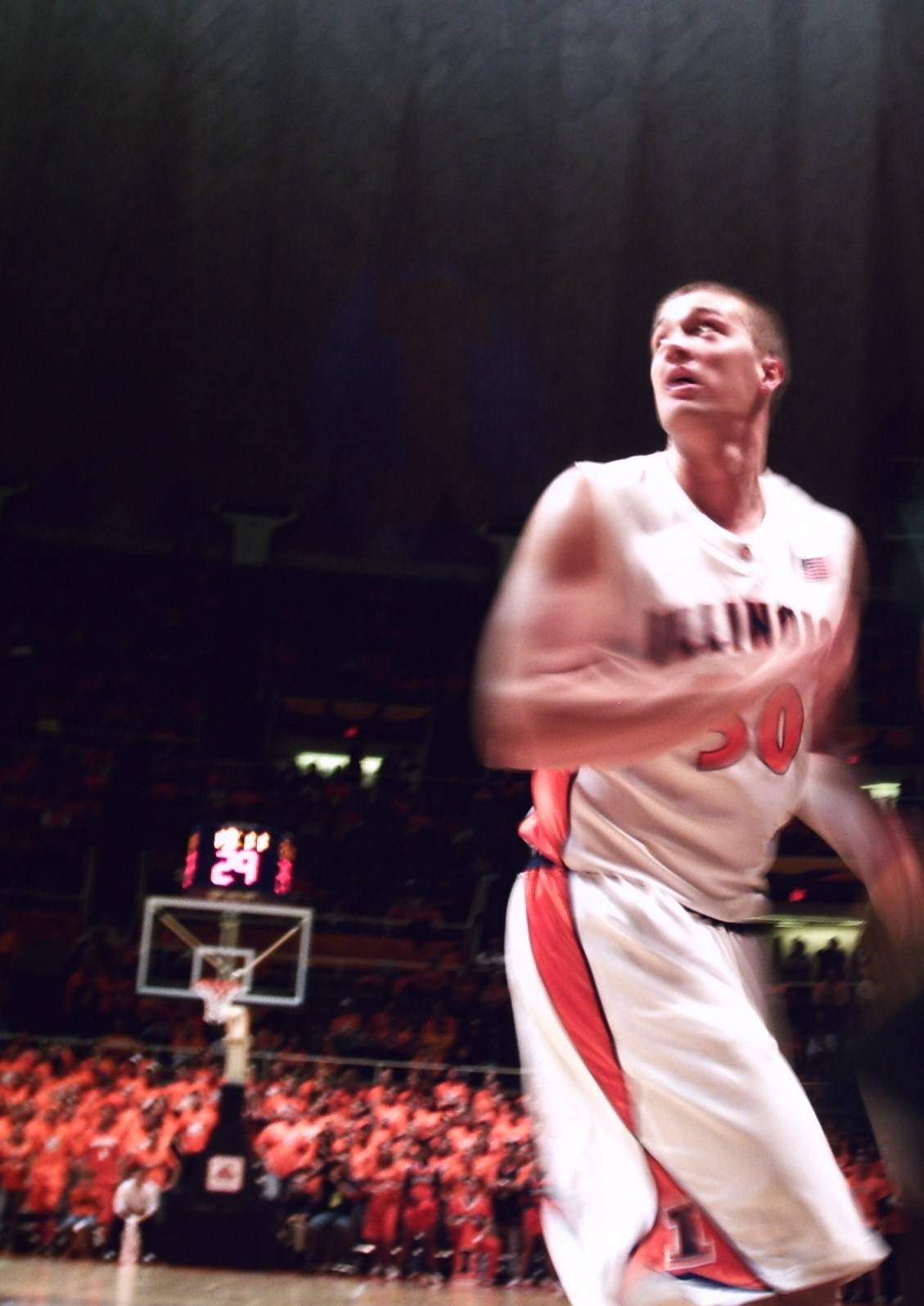
When I went to visit with players’ families at half time, I had the quick-stats sheet in my hand. Terrance Richardson asked if he could see it. “Davis has six rebounds already,” I pointed out.
“And Semrau has four!” he countered.
“You like Semrau?” I asked
“Yes,” he declared, decisively.
“Your brother likes Semrau too.”
“Yes.”
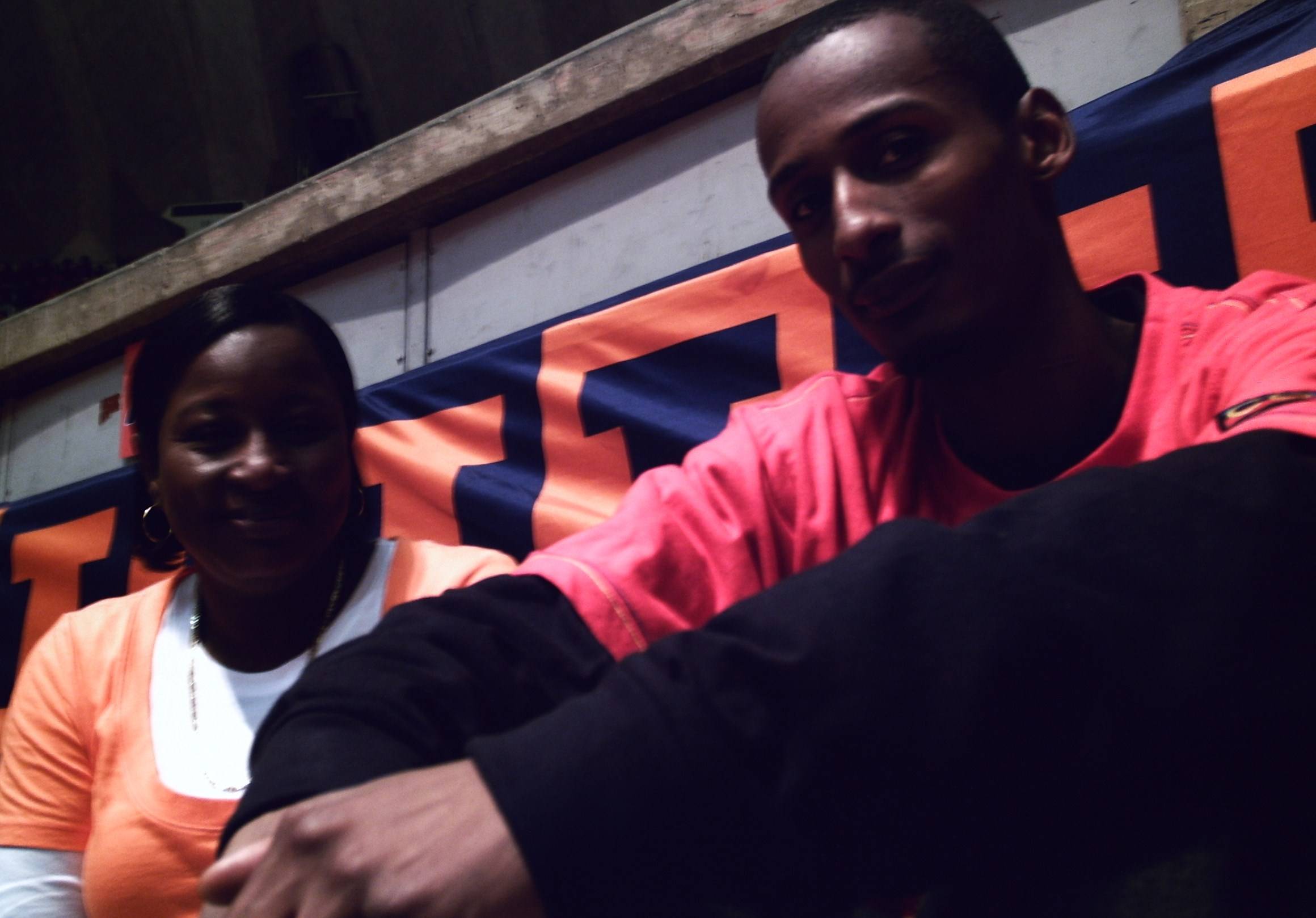
It’s no surprise. Last year Demetri McCamey nominated Rich for special attention during one of those very few post-games in which Semrau could be featured. When point guards highlight center-play, there’s a reason.
What Semrau brings, apart from muscle, is nifty interior passing, disruption on defense, and an uncanny aptitude for keeping the ball alive.
It’s like his coach said: ‘’If he plays like he’s been playing in practice, everybody’s going to say, ‘Where the heck did he come from?’ He’s our most physically gifted big man. It’s not even close. He has strength, jumping ability, athleticism. And yet he hasn’t really been able to be a part of the team. People have just forgotten about him.”
Unfortunately, his coach said that over a year ago, shortly before forgetting about him.
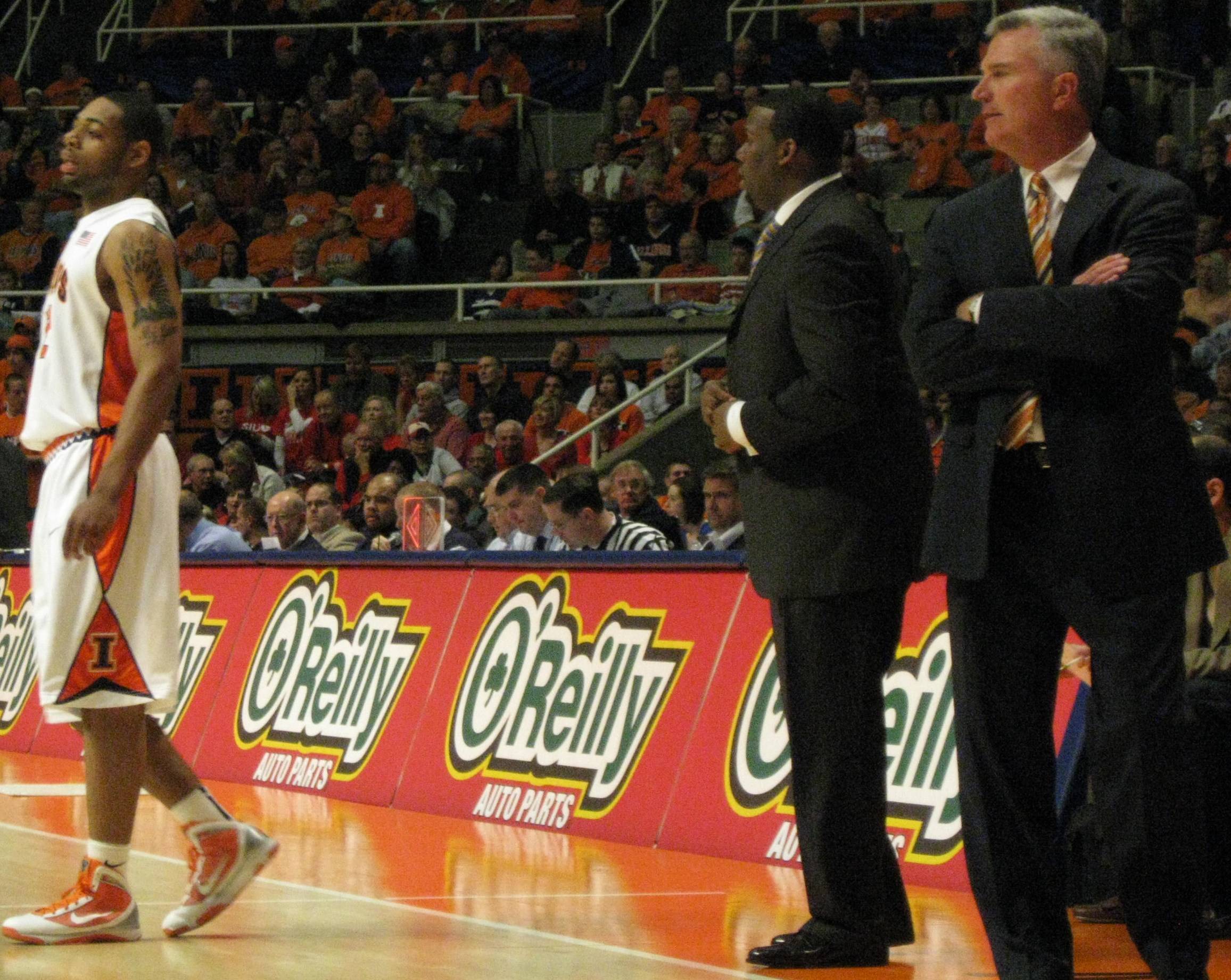
But that was then. This is now (maybe).
The Most Valuable Participant in Friday’s contest was Bruce Weber. He distributed players well, and got out of the way.
He allowed those four players to tally double-digits because he allowed more on the floor. Although Weber’s principles are as modern as Branch McCracken, I keep writing that he’s open to new ideas. He keeps saying he’s open to new ideas.
Friday he showed it. He even played zone for minutes at a time. It wasn’t a good zone (a 3–2 would have been much more effective) and it resulted in the shortest guy on the floor getting a couple of easy baskets underneath — but hey, he’s trying new things. I applaud.
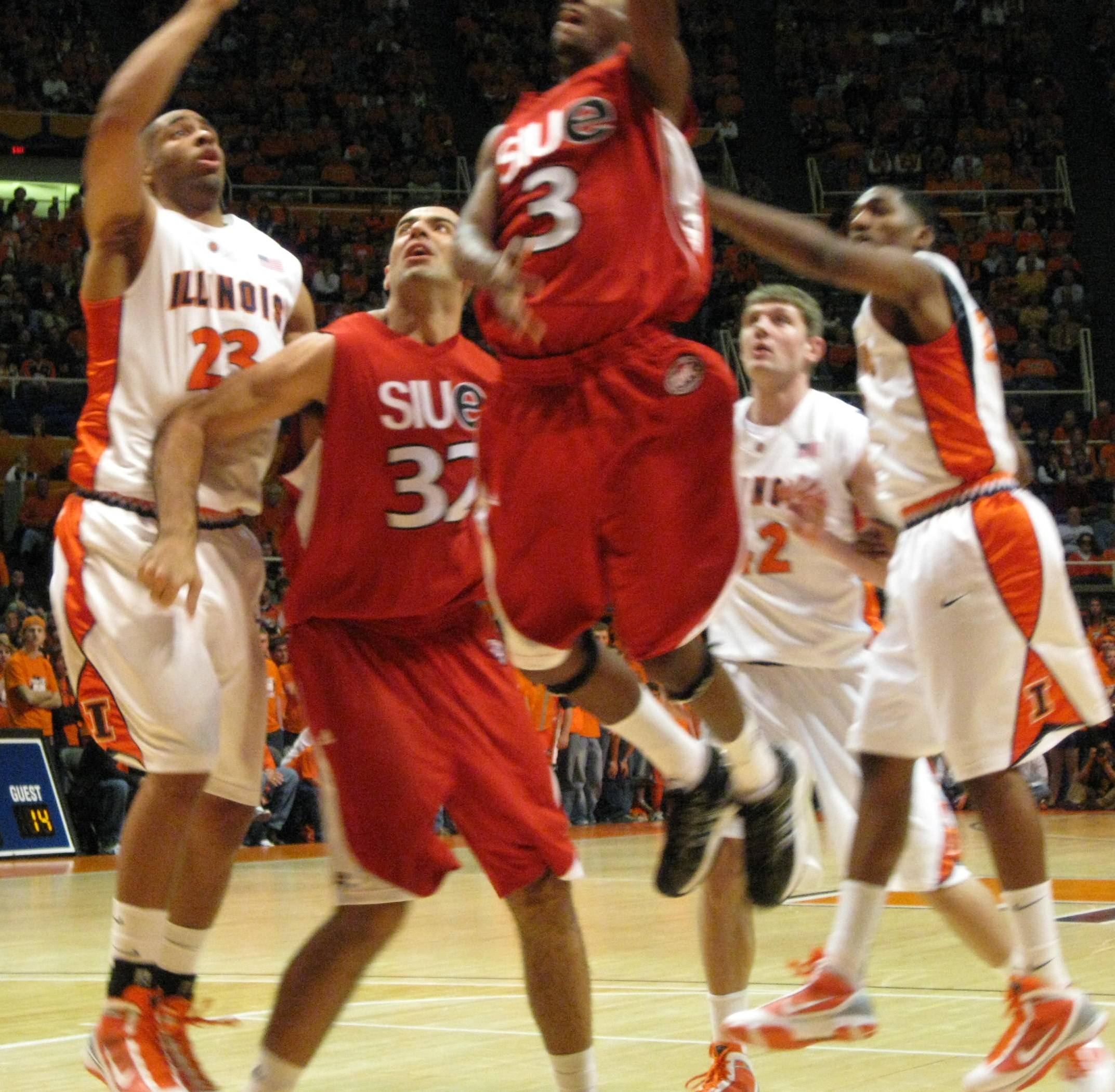
Weber’s philosophical evolution is a necessary ingredient to his continued tenure at Illinois. With an infusion of talent now coming in annual doses, he will no longer be able to draw a line between players and sitters. When Jereme Richmond arrives, Mike Davis and Tyler Griffey will still need minutes. When Crandall Head suits up, Brandon and Dietrich will continue to be awesome. As far as we know, you shouldn’t exclude Alex Legion and Demetri McCamey from next year’s plans, either.
If Weber does not continue to rotate players for multiple minutes, allowing them to pad their stats (and thus their professional vitae) and simply enjoy playing, he will find it hard going. He will find top players going (elsewhere).
At Saturday’s football game, Weber spent the afternoon with his youngest daughter, who’d just competed in a diving meet. I asked whether he’d like to talk rotation, or be left to enjoy the afternoon. He chose sensibly. But I hope to get a statement from him soon.
(I’ll be writing more about minutes and starters in a few week, along with a poll of local notables and their thoughts on same.)
When I say Weber “got out of the way,” I don’t mean to imply that he didn’t micro-manage. But his directions were concise, coherent. At 12:04 in the first half he called “look inside!” and zip bounced an inlet pass from DJ at 12:03.5, and karangg went a Mike Davis dunk at 12:03. He called “skip it!” when a wing found himself wide open, and unseen, on the weak side.
This is not always the case. Weber’s in-game monologue is audible in Savoy, but people in C-Section may think it’s incomprehensible because they can’t quite make out all the words. Well, this is true at floor level too. And the words don’t always make sense. I’m developing the theory that many of his noises are emo.
Even the simple commands can baffle. “Move! Screen!” are two commands he frequently shrieks while his team runs offense — perhaps not recognizing that these two discrete eructations, when fired rapidly and separated by negligible space in time, might be misconstrued by (or helpful to) the zebras.
But I’ll admit it, I haven’t fully gauged Weber’s self-awareness vis-à-vis in-game direction. I’m not ready to state a decisive opinion on the matter. But I’m starting to believe he might not fully appreciate his own impact on the players. A post-game comment Friday was telling:
“He really listens, but maybe right now… thinking too much instead of just playing. he’s trying to do everything right. you’ve gotta just… You’ve gotta listen in practice, learn, watch video but then you’ve gotta come out and play when it’s game time.”
This is like a judge saying “this defendant goes to prison too much.”
The player in question was Tyler Griffey. He gets a pass for his negligible impact on the game, whether he was thinking too much, or just dizzy. Tyler “had that H1N1” as the coach put it.
So you can understand his being a bit wobbly.
